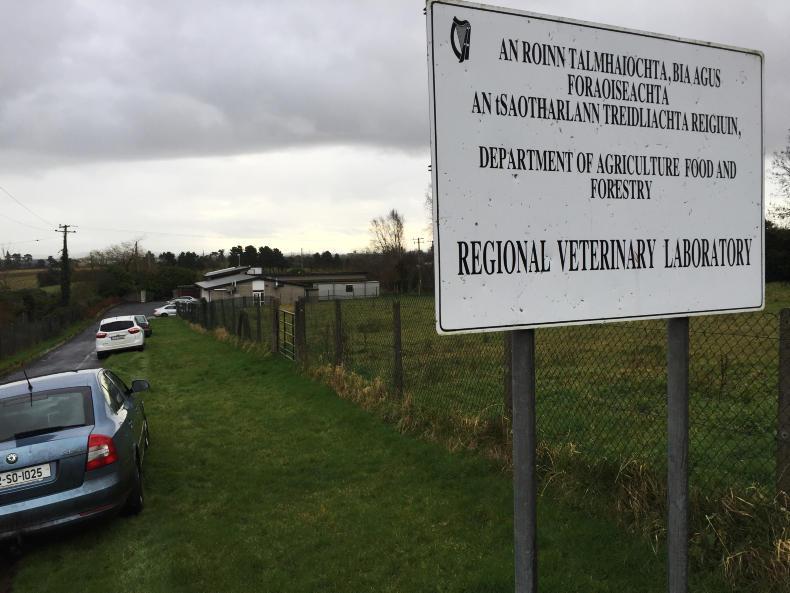Ahead of the protest, IFA deputy president Richard Kennedy argued that the current regional veterinary laboratory structure is acknowledged by authorities worldwide as the optimal surveillance system for early detection of trends and new diseases.
“For an investment of €6.4m over eight years, the optimal disease surveillance structures in place in Ireland can be maintained and the service provided to farmers enhanced,” Kennedy said.
IFA Connacht chair Padraig Joyce said farmers have made enormous investments in animal health, but these were dependent on state support through diagnostic services.
“IFA has met Department officials and highlighted to the Minister that any approach other than strengthening the diagnostic services provided by the State on all regional sites would be counterproductive,” Joyce said.
Review proposals currently examined by the Department of Agriculture could see between three and five of the six RVLs close down over time.
The ICMSA, ICSA, INHFA and Macra are also advocating for the continuation of services at all existing RVLs, and are taking part in the Sligo protest.
“The Government has just announced a €60m plan for rural Ireland and at the same time closing this down. This is giving with one hand and taking with the other,” ICSA rural development chair Seamus Sherlock told the Irish Farmers Journal.
ICMSA Clare chair Martin McMahon added that increasing distance between farms and laboratories would mean some fallen animals would not be examined in time to detect all diseases, or not at all.
“There is going to be an awful lot lost if it goes,” he said at a similar protest at the Limerick RVL last week. “Animals will go straight to the knackery.”
Read more
Threat to Sligo vet lab against rural policy - Harkin
Full coverage: RVLs
Ahead of the protest, IFA deputy president Richard Kennedy argued that the current regional veterinary laboratory structure is acknowledged by authorities worldwide as the optimal surveillance system for early detection of trends and new diseases.
“For an investment of €6.4m over eight years, the optimal disease surveillance structures in place in Ireland can be maintained and the service provided to farmers enhanced,” Kennedy said.
IFA Connacht chair Padraig Joyce said farmers have made enormous investments in animal health, but these were dependent on state support through diagnostic services.
“IFA has met Department officials and highlighted to the Minister that any approach other than strengthening the diagnostic services provided by the State on all regional sites would be counterproductive,” Joyce said.
Review proposals currently examined by the Department of Agriculture could see between three and five of the six RVLs close down over time.
The ICMSA, ICSA, INHFA and Macra are also advocating for the continuation of services at all existing RVLs, and are taking part in the Sligo protest.
“The Government has just announced a €60m plan for rural Ireland and at the same time closing this down. This is giving with one hand and taking with the other,” ICSA rural development chair Seamus Sherlock told the Irish Farmers Journal.
ICMSA Clare chair Martin McMahon added that increasing distance between farms and laboratories would mean some fallen animals would not be examined in time to detect all diseases, or not at all.
“There is going to be an awful lot lost if it goes,” he said at a similar protest at the Limerick RVL last week. “Animals will go straight to the knackery.”
Read more
Threat to Sligo vet lab against rural policy - Harkin
Full coverage: RVLs






 This is a subscriber-only article
This is a subscriber-only article










SHARING OPTIONS: